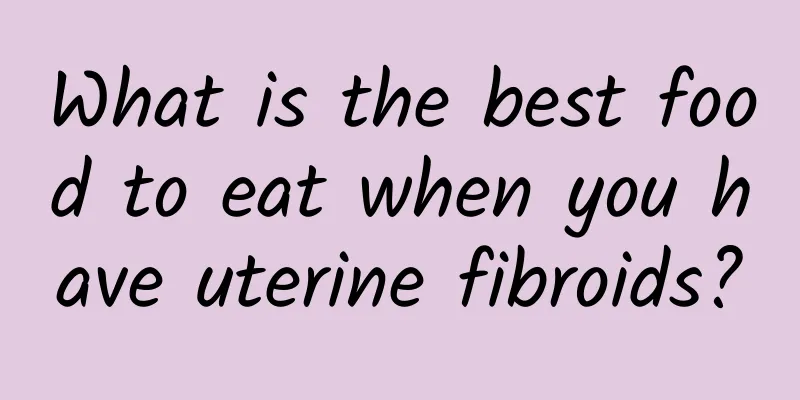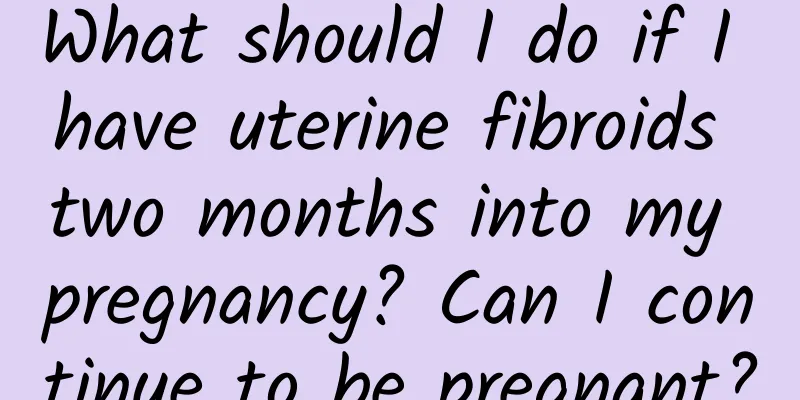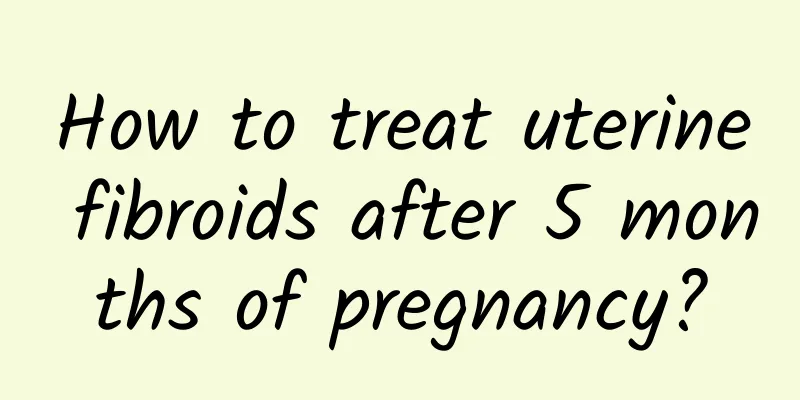What is the best food to eat when you have uterine fibroids?

|
Having uterine fibroids is a confusing and distressing problem for many women. Diet also plays a vital role in this situation. Proper diet and nutritional intake can help reduce symptoms and improve quality of life. This article will introduce some foods that are suitable for patients with uterine fibroids. 1. Choose foods rich in fiber: Foods rich in fiber can help the body eliminate excess estrogen and reduce the growth of fibroids. For example, whole wheat bread, oats, brown rice, beans, fruits and vegetables are all fiber-rich choices. By increasing the intake of these foods, you can reduce the excessive dependence of uterine fibroids on estrogen. 2. Eat more foods rich in antioxidants: Antioxidants can help reduce inflammation in the body, thereby slowing the development of fibroids. Antioxidant-rich fruits such as blueberries, strawberries, pomegranates, tomatoes and red grapes can be added to your daily diet. In addition, green tea and dark chocolate are also good choices. 3. Increase foods rich in omega-3 fatty acids: Omega-3 fatty acids are a type of healthy fat that can reduce inflammation and provide protection against severe symptoms. For example, foods rich in omega-3 fatty acids include fish (such as salmon and tuna), flax seeds, walnuts, and olive oil. Adding these foods to your daily diet can help slow the growth of uterine fibroids. 4. Reduce the intake of saturated fat and trans fat in the diet: A diet high in saturated fat and trans fat is associated with the growth of uterine fibroids. Therefore, the intake of these fats should be reduced as much as possible in the diet. Avoid eating too much red meat, butter, fried foods, high-fat dairy products and processed foods. 5. Increase the intake of vitamins and minerals in your diet: Vitamins and minerals are essential for the proper functioning of the body. Some studies have shown that vitamin D and vitamin E can be beneficial for uterine fibroids. In addition, iron-containing foods such as green leafy vegetables, beans and lean meat can help prevent anemia. Vitamins and minerals can be obtained by consuming more whole grains, fruits, vegetables and nuts. In conclusion, diet is very important for women with uterine fibroids. Proper diet and nutritional intake can improve symptoms and slow the development of fibroids. Increasing fiber-rich foods, antioxidant foods, omega-3 fatty acid foods, and vitamins and minerals, while reducing saturated fat and trans fat intake, can help fight uterine fibroids. However, it should be noted that these dietary recommendations are intended to be used as an adjunct treatment and not a replacement for a doctor's advice and treatment options. If you have uterine fibroids, it is recommended to consult a doctor before changing your diet. |
>>: What vegetables should be eaten to eliminate uterine fibroids?
Recommend
Can I have a baby if I have an ovarian cyst? What are the consequences?
Can pregnancy with ovarian cysts be born? What ar...
What should I bring to the hospital for an abortion? Which hospital should I go to for an abortion?
What should I bring to the hospital for an aborti...
What are the symptoms of chronic cervicitis?
Chronic cervicitis is one of the many injuries to...
Effective prevention methods for acute adnexitis
Cervicitis can be clinically divided into acute a...
Can I skip rope if I have chocolate cyst? What should I pay attention to if I have chocolate cyst?
Although chocolate cyst is not a difficult diseas...
You can do it at home without leaving home! In addition to squats, there are 5 upgraded leg training
In addition to squat, squat, squat (deep squats) ...
What to do with cervical erosion during pregnancy
Under normal circumstances, if a woman is diagnos...
What are the symptoms of uterine fibroids? Does it affect pregnancy?
Uterine fibroids are a serious uterine disease. T...
Sports darling! Can fitness trackers really help you lose weight?
Some people use fitness trackers as an aid to mon...
Common medications for menopause
Menopause is a natural process that all women hav...
Tips: Four ways to treat ectopic pregnancy
With the continuous improvement of medical standa...
Special manifestations of early symptoms of ovarian cysts
We must understand the symptoms of ovarian cysts ...
What is the treatment for chronic adnexitis?
What is the treatment for chronic adnexitis? This...
What is the difference between right ovarian cyst and follicle? What are the causes of ovarian cyst?
What is the difference between a right ovarian cy...
After menstruation, vaginal bleeding still occurs. What disease is this?
After menstruation, vaginal bleeding still occurs...









